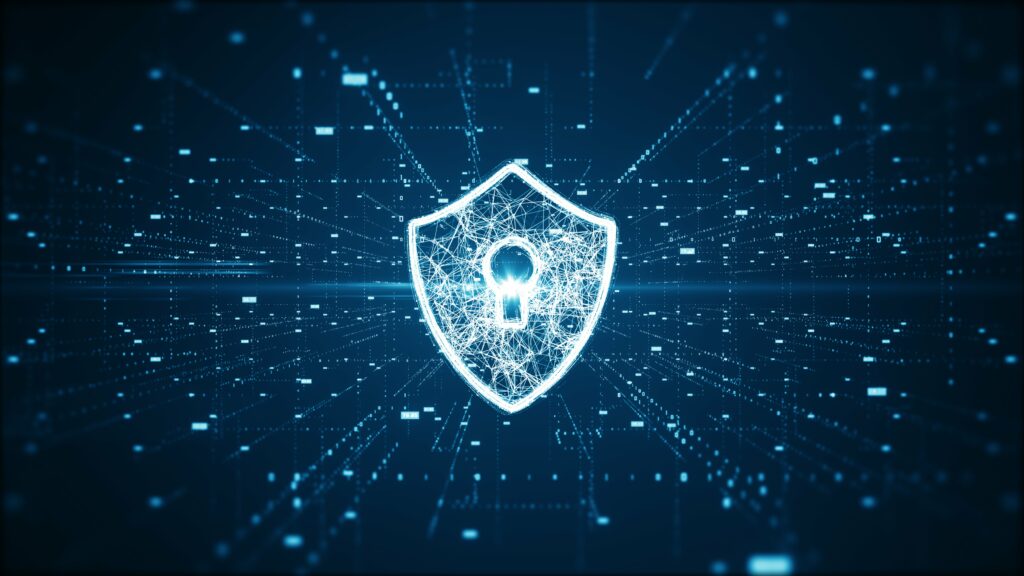Why You Should Hire a Cybersecurity Consultant

In today’s digital landscape, organizations face a myriad of security threats and challenges that can compromise their valuable information. To ensure the confidentiality, integrity, and availability of systems and data, companies need a robust and uniquely tailored security architecture.
A Security Architect is responsible for designing, building, testing and implementing security systems within an organization’s IT network. They are expected to have a thorough understanding of complex IT systems and stay up to date with the latest cybersecurity standards, systems and authentication protocols, as well as best practice cybersecurity products.
In 2023 Security Architects are in high demand. Because they provide such in-demand services in a highly competitive market, a lot of businesses struggle to attract and retain Security Architects as full-time employees.
These businesses often turn to Cybersecurity Consultants instead. By engaging a Cybersecurity Consultant, you can gain access to specialized knowledge and experience in dealing with the latest cybersecurity threats and technologies when you need it.
Benefits of Working with a Cybersecurity Consultant
Expertise and Specialization
Cybersecurity Consultants specialize in providing comprehensive cybersecurity solutions and expertise in dealing with the latest cybersecurity threats and technologies. These experts can design and implement an effective security architecture that addresses your organization’s unique security needs.
No matter the size of your company, engaging a Cybersecurity Consultant can help you protect your business from cybersecurity threats.
Risk Assessment and Mitigation
A Security Consultant can conduct a thorough risk assessment to identify potential vulnerabilities and risks within your IT infrastructure. By analyzing your existing systems, processes, and policies they can identify gaps and provide recommendations to mitigate risks. This proactive approach will help you stay ahead of potential cybersecurity breaches and minimize the impact of security incidents.
Compliance and Regulatory Requirements
Public sector organizations must adhere to various regulatory frameworks and standards, such as Canada’s Personal Information Protection and Electronic Documents Act (PIPEDA) and provincial legislation, the European Union’s General Data Protection Regulation (GDPR), Health Insurance Portability and Accountability Act (HIPAA) in the United States, or the ISO 27001 international standard for managing information security.
Cybersecurity Consultants are well-versed in these requirements and can help ensure that your security architecture aligns with these standards. This not only helps you meet legal obligations but also enhances your reputation and builds trust with your stakeholders.
Scalability and Flexibility
A cybersecurity firm can design a security architecture that is scalable and adaptable to future needs. As our organization grows or adopts new technologies, the firm can help us integrate security measures seamlessly. This scalability ensures that our security architecture remains effective and aligned with our evolving requirements.
Cost-Effectiveness
While there is a cost associated with hiring a cybersecurity firm, it can be a cost-effective approach in the long run. Investing in a well-designed security architecture helps prevent costly cybersecurity breaches, data loss, and reputational damage. It also saves you from potential legal and regulatory penalties that may arise from non-compliance.
Selecting the Right Consultant
Deciding whether to engage a single consultant or a specialized consulting firm depends on factors like internal expertise and resources, bandwidth and time constraints, fresh perspectives, specialized knowledge, cost, and long-term support.
Here are some helpful things to consider as you move through the process:
Define Your Requirements
Clearly define your project requirements, objectives, and expectations. This includes determining the scope, timeline, budget, and areas of expertise needed for your project. Have a clear understanding of your organization’s needs to enable you to evaluate potential firms or people based on their ability to meet these requirements.
Research and Shortlist Firms
Conduct thorough research to identify firms that specialize in enterprise security architecture and have a proven track record in delivering similar projects. Seek recommendations from industry peers, review online resources, and consider consulting with industry experts who can provide insights into reputable firms.
Hilltop Partner Network works with several specialized firms and independent cybersecurity consultants—and we’ve done a lot of the vetting for you already!
Evaluate Experience and Expertise
Assess experience and expertise in enterprise security architecture. Look for evidence of successful project implementations, relevant certifications, knowledge of leading cybersecurity solutions, and specialized knowledge in areas such as risk management, regulatory compliance, and emerging cybersecurity technologies. Consider past clients and industry sectors they have served to ensure they have experience in your specific area.
Request detailed information about processes, frameworks, and tools they utilize to ensure they align with industry best practices. Assess their ability to customize solutions based on your organization’s unique requirements and risk profile.
Client References
Request client references or case studies. Reach out to their past or current clients to gather insights into their experience working with them. Inquire about their ability to meet deadlines, communicate effectively, deliver on expectations, and provide ongoing support.
Proposal Evaluation
Request detailed proposals that outline their approach, project timeline, resource allocation, cost breakdown, and deliverables. Evaluate the proposals based on alignment with your requirements, clarity of communication, feasibility, and future return on investment.
Meetings and Presentations
Arrange face-to-face or virtual meetings to discuss your project requirements in detail. This provides an opportunity to assess their communication skills, responsiveness, and ability to understand and address your organization’s specific needs. This is where you can also discuss the proposal that was provided.
Contracts and SLAs
Before finalizing your selection, carefully review the contracts, service-level agreements (SLAs), and any legal or security-related documentation provided. Ensure that the terms and conditions align with your set expectations, including confidentiality, data protection, and intellectual property rights.
By enlisting the services of a specialized Cybersecurity Consultant your organization can tap into their expertise and ultimately safeguard your valuable information assets.
Are You Ready To Get Started?
Let us know what you're looking for, and how we can help you.
"*" indicates required fields

Hilltop Partner Network,
with assistance from AI.









